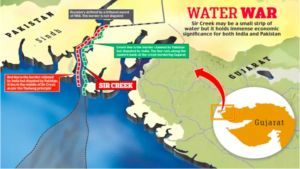The Zero Debris Charter is a critical step toward creating a sustainable future, addressing the challenges of space, oceanic, and terrestrial debris. For UPSC aspirants, it is an excellent example of global environmental governance, showcasing the interplay of technology, policy, and international collaboration in achieving sustainable development. By understanding the principles and strategies of the Zero Debris Charter, aspirants can gain valuable insights into the complexities of environmental management and its relevance in global policy-making.









